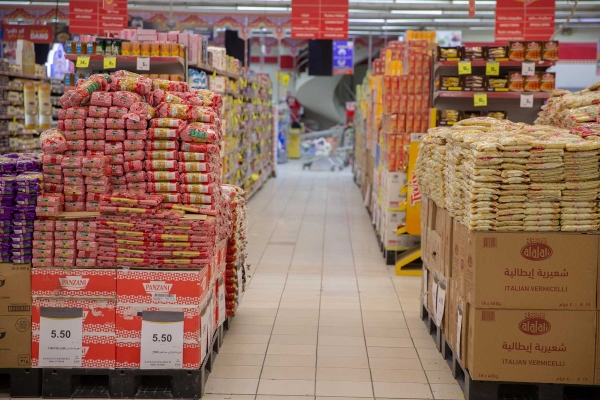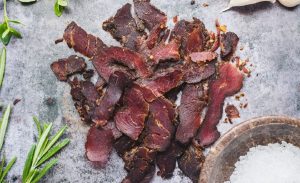HalalFocus interviews Hans C. Kastensmith (HCK), chairman and CEO, InstantLabs a machine they have designed called the Hunter RT PCR that can enable food producers to test products themselves for traces of porcine DNA. This will be a cost effective way for food producers to get results in the same day at their own facility. It will also be of use to Halal certifiers that may not have access to the labs and testing facilities necessary in modern food production, to guarantee Halal food is not contaminated with pork DNA in the production line
HF: Tell me about the Hunter. Why did you apply Real Time PCR (qPCR) to the food safety sector?
HCK: First, the founders of InstantLabs have decades of experience in healthcare. Although RT-PCR has important role in treating patients, InstantLabs wanted to prevent people from getting sick in the first place. The same advantage that RT-PCR brings to medicine; rapid accurate identification of pathogens, can also be brought to food safety. No longer do you have to wait days for an answer; now results can be ready in hours.
Food producers want to ensure a safe and healthy food supply. There is growing public awareness about food safety as well as about healthy and nutritious foods. Food-borne illness kills thousands per year.
There are many approaches to food testing, and all the current methods have trade-offs: Immunoassay tests are inexpensive and fast, but are not very accurate; culture plates are accurate but take days for results; and traditional qPCR is fast and accurate but is expensive and requires a high level of skill to operate.
So the ideal food safety test would have the following characteristics:
-reduce the complexity of the test;
-simplify the sample enrichment process;
-automate or eliminate the DNA acquisition phase;
-provide a flexible platform that could start tests on demand;
-tailor the testing to industry needs;
-maintain the ‘gold standard’ accuracy of qPCR.
Hunter, the InstantLabs qPCR machine, has been designed for ease of use and for delivering results at the point of need. So now food producers can test their own products and have the results the same day, and not have to wait for results while the food is warehoused.
InstantLabs has developed tests for the food safety market – Salmonella species, Salmonella Enteritidis, Salmonella typhimurium, E Coli 0157 H7 (along with the EAE gene and the STEC-producing variants), and Listeria Monocytogenes. We only recently developed a Pork DNA test, which actually is much simpler and shorter (two hours) compared to the pathogen tests.
HF: So how are you applying this to Halal testing?
HCK: Just as hazard reduction procedures (good sanitation, worker training, cleanliness, etc.) are the most important items in food safety, proper respect and procedures around producing Halal food remain the cornerstone. However, we now have a way to validate that all proper procedures related to pork contamination have been followed.
Real-Time PCR can detect tiny amounts of porcine contamination. This contamination may not be the result of malfeasance. We have found porcine DNA in a surprising array of products that have innocently gone undetected. For example, the lubricant for food processing machinery is often animal-based and sometimes pork based. These lubricants can enter the food supply.
In our travels around the Middle East and Southeast Asia there is a growing demand for increased food safety, as in the rest of the world. Added to that is the desire to be Halal certified. And since qPCR is a DNA-based method, we decided to develop a pork DNA test which can, in two hours, detect the presence/absence of pork in food products. We are excited about this test because it represents an introduction of scientific certainty into the Halal process. Of course this is only part of the Halal certification process, but the accuracy of RT PCR means that if there is pork present in the same, we will detect it. Introduction of the Hunter system into the Halal certification process also establishes a known standard of testing, since people in the field regard it as the ‘gold standard’ of testing.
HF: But Halal applies to more than food. What about testing other items?
HCK: InstantLabs is currently testing food only and using our pork DNA test to see if meats or other foods contain traces of pork. Frequently we find traces of pork DNA in the lubricants used in the machines that cut or grind or package the Halal foods. We have done limited testing on cosmetics and have also had positive results. We want to develop some other tests, which will not be qPCR tests, to detect alcohol and other items which might be considered haram, or forbidden, by the Muslim consumer.
HF: How has the Muslim community reacted to the introduction of the Hunter?
HCK: With a few exceptions, the reaction has been overwhelmingly positive. Most Halal certifiers or Muslim consumer groups welcome a new scientific standard into the certification process. So we have had great interest not only from certifiers in the U.S. but in Southeast Asia, Canada and the UK.
HF: How can readers get more information on the Hunter?
HCK: Anyone interested in learning more about the Hunter is welcome to contact Ross Newland, rnewland@instantlabs.com. Please also take a look at our website (www.instantlabs.com). InstantLabs will have a booth at the Halal & Healthy Show in Istanbul on the 13-16 October 2011, where we hope to meet with international Halal certifiers as well as food producers.
Ross Newland will also be attending the American Muslim Consumer Conference on the 29th October 2012 at the Hyatt Regency in New Brunswick, New Jersey.
HF: How large is the Hunter RT PCR machine?
HCK: The Hunter weighs only 8 kilos and has its own IP address, so it can be networked over the Internet. Here are some pictures, which I think convey the idea that it is portable and easy to use.



